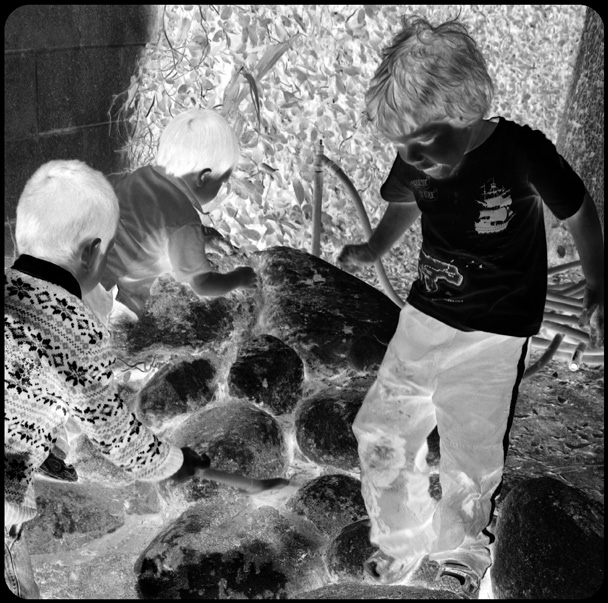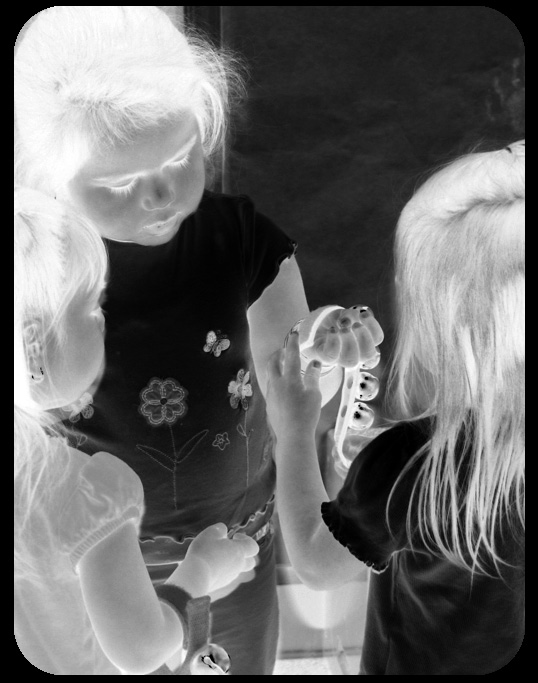Cds.ojc.edu



Family Literacy TIPS
Words, Words Everywhere!
A three-year-old playing
Words, Words Everywhere P.1
with a toy remarks, "For
some reason the fan is not
Math is for Everyone P.1
working." A four-year-old
Home: Where Language P.2
expressing his frustration at a
Learning Begins!
friend's decision to discontinue play
Promoting Language and P.3
says, "It is ridiculous!" Big words from some
Literacy in the Classroom
young folks! While, it is cute to hear little children use big words, it is more important to hear sophisticated
Big Words for Big People P.4
vocabulary at an early age because of the key role it
Promising Practices P.4
plays later as children learn to read. Knowing how to say
Helpful Resources P.4
a word is not enough. Children need definitional vocabulary, the ability to explain a word's meaning and use it in a sentence (National Early Literacy Panel, 2008).
Adults play a critical role in supporting children as they develop their very own "box of words." New words should be introduced in ways that gives children a deeper knowledge of them. Books like "Big Words for Little People" (Curtis & Cornell, 2008) provide children with the opportunity to learn the meaning of "big words" in a context they can understand. The last paragraph of the book says, "See, Big Words are easy. How well you've done! Now go off and have some really great fun. And next time a grown-up thinks you don't have sense, show them with Big Words, your INTELLIGENCE." The book teaches the power of words and the fun children can have as they learn and play with them!
Math is for Everyone
To learn to read
Three-year-old Jamie is lining up his toy vehicles
is to light a fire,
from the smallest to the largest. His five-year-old sister remarks, "Jamie, take the planes out. They don't
every syllable is
belong with the others."
a spark.
Three children are stringing beads to make bracelets.
Three-and-a-half-year-old John uses the same color
Victor Hugo
beads with two larger beads at the end. Six-year-old Sara uses two alternating colors and eight-year-old Mia uses multiple bead pairs and one central bead to design a "same-same" or symmetrical bracelet.
These children are displaying their developing understanding of mathematical concepts such as comparing and sorting. Children may encounter math concepts in their play and everyday routines. However, it is
critical that adults highlight math concepts, introduce mathematical words, and pose simple math problems, i.e. "mathematize" the experiences (NAEYC & NCTM, 2002).
An adult can mathematize these moments by:
"Jamie, you organized your vehicles from shortest to longest. Your sister can help separate your vehicles into two groups of planes and cars."
"John, you used two big beads. How many small beads did you use?"
"Sara, tell me about the pattern you made."
Math vocabulary is an excellent source of "rare and juicy" words. Adults should use math language and connect children's experiences to all the Math Domain Elements.
National Head Start Family Literacy Center • 400 West Ventura Blvd., Suite 250 • Camaril o, CA 93010 • Phone: 800/849-7810 • Fax: 805/484-0855 • Email: [email protected] Pg. 1
Home: Where Language Learning Begins
"Mom, are there penguins in Africa?" asks four-year-old Sam. Sam and his parents are equally intrigued to find the penguins located in the "Animals of Africa" section of the zoo. Sam's mom reads aloud the brief information on the display board. Later at the local library they do an internet search for "penguins in Africa" and borrow some non-fiction books about penguins. Books like "A Rookery of Penguins" (Spilsbury, 2004) provide Sam the chance to learn new words such as "burrows", "rookery" and "continents." They also read a few fiction books "Penguin Pete" (Pfister, 1994) "And Tango Makes Three" (Parnell & Richardson, 2005) in an effort to satisfy Sam's interest in penguins and discover there are penguins in Africa.
Strategies to build children's vocabulary:
1. Sam and his mom discuss the books they are getting from the library. "I think you will enjoy Penguin Pete because it is
about a little penguin who wants to swim- just like you do. It will be exciting to read whether he is successful."
2. When Sam was a baby his mom read to him. She consistently responded when he pointed to pictures, telling him about
them. Now she tries to find rhymes related to Sam's interests and rhymes words as she talks.
3. Sam has lots of opportunities to engage in dramatic play so he can practice his new words and all that he has learned
about Penguins. Pretend play builds imagination, vocabulary, and skills in using language that is not connected with the here and now.
4. Sam and his Mom read fiction books, "Penguin Pete" "And Tango Makes Three" because Sam enjoys stories with animal
characters. The a non-fiction book, "A Rookery of Penguins", exposes Sam to new, rare, "juicy" words such as "burrows", "rookery" and "continents". Using fiction and non-fiction books introduces children to topics, sustains, and expands their interests, and deepens their knowledge. Non-fiction books present new vocabulary and answer questions in a straightforward manner, while fictional stories are easy for children to comprehend (Camp, 2000).
5. Sam's mom does not limit herself to "simple" words and uses synonyms like "habitat" vs. "home." Sam's adults use the
new words in daily conversation and help him practice using these words by commenting, questioning - "It's an emperor penguin." "Can you show me where the penguins live on the map?"
6. Sam's mother helps Sam learn the meaning of new words through familiar routines and activities. For example, the
word "burrows" is made meaningful by connecting it with rabbit "burrows" in the backyard or by exploring the alternate meaning of the word by "burrowing" under the blankets during playtime.
Everyday conversations at home promote language development. Conversations occur anywhere,
at any time, and in any language. They involve at least 3-5 exchanges and they can be real or pretend.
Parents can explain what words mean as they talk about them. Talking with children can help build
wonderful memories (Pappano, 2008b).
National Head Start Family Literacy Center • 400 West Ventura Blvd., Suite 250 • Camaril o, CA 93010 • Phone: 800/849-7810 • Fax: 805/484-0855 • Email: [email protected] Pg. 2
Promoting Language and Literacy
in the Classroom
"Hey, dad there is a tent in room!" 3 year-old Yasmin
remarks excitedly. Yasmin and her dad arrive Monday
morning to find a full-size tent in the middle of the
room, welcoming students back after the weekend and
introducing them to the concept of "camping." Yasmin's
dad responds, "We will have to ask Ms. Tracey's for a list
of books and go to the library over the weekend."
Yasmin's teachers have planned
the learning experiences with
specific outcomes for the children's
development and they intentionally
use research-based strategies to
promote vocabulary development.
Strategies to build children's vocabulary:
1. Lesson plans identify opportunities to use new and
encourages Yasmin to say as much as she can and to try
unique words such as "campsite" "bedroll" "backpack"
new and different vocabulary. When Ms. Tracey follows
and "canteen." The new words are made "real" with
Yasmin's lead and talks about "animals and camping",
photos, objects, and activities related to the words.
Yasmin is more eager to continue the conversation.
2. Ms. Tracey incorporates new words into daily
4. Ms. Tracey connects home and school by providing a list
conversations. In the block center she joins children in
of activities, new words, and questions related to the
building a "camp-fire" and in the dramatic area she lies
theme so families and other caregivers can talk about
down on the "bedroll" to watch the stars in the sky. In
multi-lingual groups parents and staff use new words in the children's home languages.
5. Kay's parents, who are avid campers, worked with Ms.
3. When, Yasmin picks up a classroom-made book,
Tracey to plan some activities for the children including
"Animals You May Encounter While Camping," Ms. Tracey
songs children sing at camp, "Boom Chicka Boom" and
asks, "What would you do if you met these animals?"
"Kookaburra." Using nursery rhymes or just rhyming
Ms. Tracey always waits silently for 5 or more seconds
words makes learning more fun. Children remember
so Yasmin has time to think about the question, find
more and stay interested when they are having fun.
the words to answer, and responsed. This extra time
Simply exposing children to "new", "rare" or "juicy" words is not enough!
It is important to provide lots of opportunities use words over and over again in their interactions
to reinforce words by: rereading books with with children and each other, they help children
new vocabulary, using different media such as master concepts, add words to their definitional
flannel boards or puppets to retell the stories, vocabulary by learning what a word means (Stahl, keeping related books in the library corner, 2003).
including the words in the writing center, and
displaying the words in the room. When adults
National Head Start Family Literacy Center • 400 West Ventura Blvd., Suite 250 • Camaril o, CA 93010 • Phone: 800/849-7810 • Fax: 805/484-0855 • Email: [email protected] Pg. 3
Big Words for Big People!
Over the summer Kiera, a 32 year-old- mother of two, renewed her childhood passion for books and some of the credit goes to her children! Kiera has known from her years as a Head Start parent and teacher that reading books to children builds their vocabular-ies. She has always encouraged her children to participate in the
Summer Reading Program. Besides reading the books, the children maintain a list of new words they learn. At the end of the school year John Jr., 11, and Mica, 5, brought home their summer reading list and insisted that Kiera had to read with them and start her own list of "new words". At first Kiera declined because of demands of work and school but accepted the invitation when John Jr. said, "Mom, read the books on my list. You can read them in a short time." Kiera found books on the list that she had read as a child and discovered some new authors. It was also fun for the three of them to find and read books by authors like Roald Dahl who write
for children and adults. From their growing list of new words they quizzed each other on the meanings by using them in creative sentences!Adult education takes many forms and supports children's later success in a variety of ways. Kiera's experience reminds us of the important role parents play in supporting their children's development - especially building vocabulary. It also reminds us of the importance of par-ticipating with children in their activities, listening to their requests, and serving as role models. Adults and children add to their vocabulary by talking with each other. Kiera, John and Mica
will continue reading together, using the new words, and adding to their "box of sophisticated, rare, 'juicy' words." Kiera's modeling is a powerful message her children will remember about learning and growing throughout life.
Community Action Partnerships of San Luis Obispo County, Inc. Head
Click on the link: "Math
Start has signed an MOU with their colleagues at the Monterey County
Webcast Series and Lessons"
Office of Education Migrant Education Program to assist migrant families
for creative and effective
to strengthen children and parents to strengthen their literacy skills in all
strategies to help children
areas of family literacy. They identified specific responsibilities and actions each agency will undertake and setup processes for monitoring and adjusting as needed in order to assure that
children and families have access to a wide variety of educational opportunities. For further
From Reading Rockets http://
information, contact Eliza Gomez, ECE Program Director, Phone: 831-755-6414 or Fax:831-
We at NHSFLC are asking you to send your program's "Promising Practice" to be showcased
Download ready to print
in the TIPS newsletter. A Promising Practice is an activity, strategy, tool, or resource that
note cards to write and send
special notes in your child's
your program uses regularly to support family literacy. For more information contact, Jhumur
REFERENCES:
Camp, D. (2000). It takes two: Teaching with twin texts of fact and fiction. The
Pappano, L. (2008a). Smal kids, big words. Harvard Education Letter, 24(3). Retrieved
Reading Teacher, 53(5), 400-408. Retrieved from http://www.readwritethink.
Pappano, L. (2008b). The power of family conversation. School and community
Curtis, J. L. and Cornel , L. (2008). Big Words for Little People. New York, NY: Harper
programs help parents build children's literacy from birth. Harvard Education
Letter, 24(3). Retrieved from http://www.hepg.org/hel/article/194
National Association for the Education of Young Children & National Council of
Parnel , P. & Richardson, J. (2005). And Tango Makes Three. New York, New York: Simon
Teachers of Mathematics (2002). Early childhood mathematics: Promoting
& Schuster Publishing.
good beginnings. Joint position statement on math. Washing ton, DC: NAEYC.
Pfister, M. (1994). Penguin Pete. Chambersburg, PA: North-South Books.
Retrieved from http://www.naeyc.org/files/naeyc/file/positions/psmath.pdf
Spilsbury, R. & L. (2004). A Rookery of Penguins. St. Louis, MO: San Val.
National Early Literacy Panel (2008). Developing early literacy: Report of the National
Stahl, S.A. (2003). Words are learned incremental y over multiple exposures. American
Early Literacy Panel. Washington, DC: National Institute for Literacy. Retrieved
Educator, Spring. Retrieved from http://www.aft.org/pubs-reports/american_
National Head Start Family Literacy Center • 400 West Ventura Blvd., Suite 250 • Camaril o, CA 93010 • Phone: 800/849-7810 • Fax: 805/484-0855 • Email: [email protected] Pg. 4
Source: http://cds.ojc.edu/pdf/TIPS2_eng.pdf
The 9th International Congress Of Epilepsy Tehran 3-5 October 2012 Powered by: Iranian Epilepsy Association In association with: Shefa NeuroScience Research Center Shahid Beheshti Medical University In the name of god First of all, I would like to express my gratitude to god for the blessing of being a part of human's effort to increase their knowledge and advancing the science.During the past nine months of preparation for the ninth international epilepsy congress, we have been trying very hard to meet different aspects of holding an inclusive international congress which would benefit all the participants.From choosing the national and international experts and speakers in different areas of expertise, to setting up different scientific and executive committees and evaluation of the papers.Hereby I would like to express my gratitude to all the experts who chose this conference to present their work. This year we received 130 papers and posters. Despite the high quality of the papers we were not able to include all of them in the conference due to our limitations in terms of both time and the space for presentations. I would also like to appreciate the effort of all the authors whose work is not accepted for presentation and wish them the best of success in their career. Finally, this conference was not possible without the sincere effort and selfless cooperation of many individuals, organizations and the generosity of our sponsors. Here I would like to thank Dr. Kourosh Gharagozli and Dr. Hosein Delavar Kasmaei for choosing me as the chair of the congress, my colleagues in education office of the epilepsy organization, especially Mrs. Javadi for their helpful assistance, Dr. Ahmad Shahidzadeh Mahani and all the friends and colleagues who have helped us to hold this congress.I hope this congress will give all the experts a chance to meet and share their experiences and findings and help us to increase our knowledge of epilepsy.Looking forward to see you all,
30 años de vida institucional. Antecedentes históricos El proceso de creación concluyó el 13 de agosto de 1980 con la oficialización de la Marina de Guerra Sandinista. Su primer A partir de 1931, el General Augusto C. Sandino designó jefe fue el Comandante Richard Lugo Kautz (q.e.p.d.). El 13 al coronel Abraham Rivera para desarrol ar la guerril a de agosto se estableció como día de su fundación.



